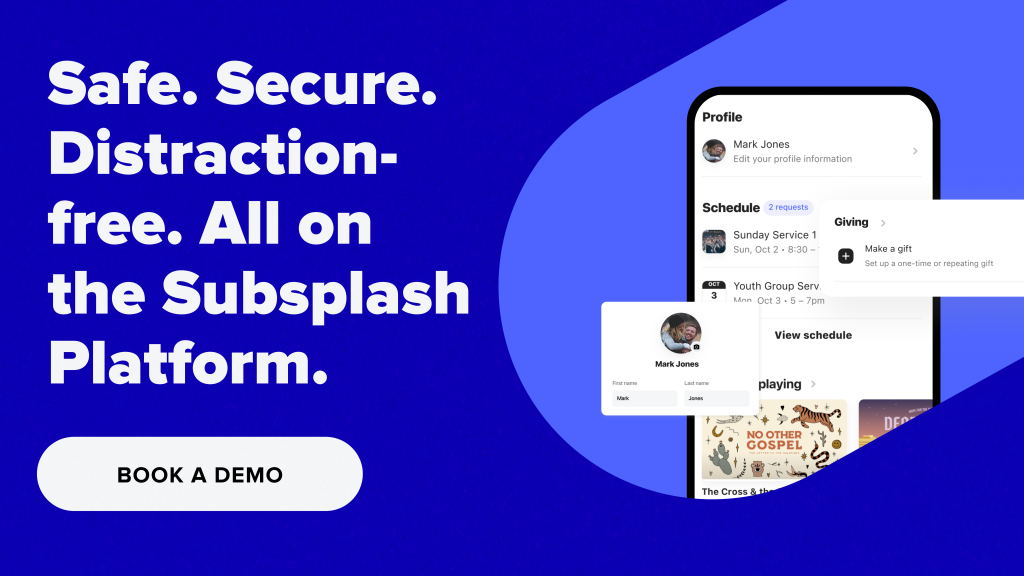
Is your ministry overly dependent on Big Tech? Or are you and your leadership team cautious about adopting ever-evolving technology? You’re not alone!
By Olivia Massimiano
Limitations of Big Tech
While recent advances in technology — such as complex algorithms and generative AI — can be useful to boost efficiency and cut corners, they often come at a cost to the user.
Competing against the algorithm
At their core, Big Tech companies are businesses that constantly reevaluate and update their services in order to make money. For example, social media platforms like Facebook and TikTok want to keep people on their apps for as long as possible—the more engagement, the more money in their pockets.
They utilize complex algorithms to prioritize content they believe each user is likely to interact with (based on their usage history). It’s not fair, and nearly impossible, for your church to compete with content that is being purposefully prioritized and pushed to your community’s feed.
Declining organic reach
Along with algorithms, there’s an overall diminishing trend on organic reach resulting in “leads,” or people that engage with and find your church’s content online through free avenues. Many digital spaces now are unfortunately “pay-to-play”—paid advertisements and boosted posts.
Whether they follow or like your accounts online, your community might not be served all of your non-paid content. Alternatively, paid content might rub people the wrong way, making newcomers less likely to look further into your church and what you have to offer.
Risks of overreliance
Big Tech platforms and tools are not inherently bad. They have widespread use, popularity, and often free service. These platforms can be a great way to reach people where they already are online. However, free tools often come at a cost, such as:
- Censorship & restrictions: Risks of having your church content flagged, muted, or removed based on subjective guidelines
- Harassment & safety: Over 20% of Christians report that they have been harassed online because of their faith
- Platform dependency: Possibility of losing connection with your community if a platform drastically changes, loses widespread usage, or disappears
- Data privacy concerns: Some in your church community might have growing skepticism about data usage by Big Tech, leading them to not engage with you on those channels
Best practices for building real connections
- Audit your digital strategy: What digital tools are you using? What is working? What are the potential risks?
- Invest in direct communication tools: Build email lists, send bulk text messages, and push notifications through your custom church app
- Embrace a hybrid ministry model: Emphasize the value of in-person gatherings but make it known how people can stay up-to-date and still connect digitally through your mobile and TV apps, church website, live streaming, and other tools
- Encourage word-of-mouth & local outreach: Go back to basics! A friendly conversation or a personal invite can go a long way in this digital-first world.
Next steps
What tools are you relying on to share the gospel and connect with your community? If it’s anything less than total, undeterred access to your content—at any time and on any device—it might be time to reassess!
Fortunately, there are solutions built with churches in mind that make it simple to cultivate a safe and engaging digital environment. Schedule a free demo with a Subsplash ministry consultant today, and equip your church with tools built intentionally to further your mission!
 Olivia Massimiano lives in Seattle, WA and is a proud dog owner and movie enthusiast. Inspired by her experience as a church volunteer and member, she is passionate about equipping churches with compelling and useful content.
Olivia Massimiano lives in Seattle, WA and is a proud dog owner and movie enthusiast. Inspired by her experience as a church volunteer and member, she is passionate about equipping churches with compelling and useful content.




